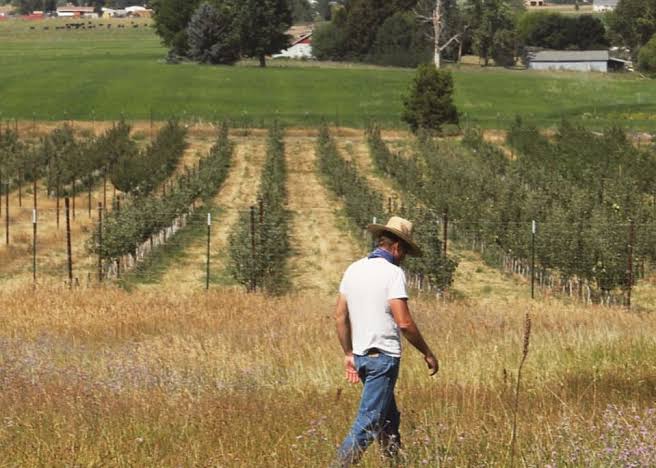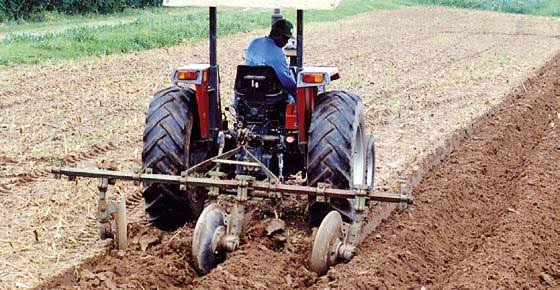During pre-planting operations, the choice of land for cultivation is a critical decision farmers should make as it determines the success or failure of the crop. Site selection plays an important role in sustainable agriculture as it considers the climatic, hydrological and geological factors that influence crop productivity.
In organic agricultural crop production cultivation site selected is such that is devoid of heavy metals or hazardous materials to ensure its status of being certified organic.
In general, Pre-planting operations, including site selection and land preparation, are critical initial steps in the agricultural process, serving as the foundation for successful crop production.
These operations are akin to laying the groundwork before building a house. Site selection involves choosing the most suitable area for cultivation, considering factors such as soil type, topography, climate, and accessibility to resources like water and sunlight.
Land preparation, on the other hand, is like creating a nurturing environment for seeds to grow. It involves a series of activities such as plowing, harrowing, leveling, and adding necessary amendments to the soil, such as organic matter or fertilizers, to optimize its fertility and structure.
This process ensures that the soil is well-aerated, free from weeds, and has the right texture for the seeds to germinate and develop strong root systems.
Furthermore, pre-planting operations set the stage for efficient water management, preventing soil erosion and facilitating the efficient use of irrigation systems. They also help to minimize the impact of pests and diseases, creating an initial defense line for the crops against potential threats.
In simpler terms, think of pre-planting operations as creating a healthy and welcoming environment for your plants, just like preparing a cozy, well-lit room for a seed to sprout and grow into a healthy plant.
By carefully selecting the right spot and preparing the land adequately, farmers can provide their crops with the best possible start, setting the stage for a successful and bountiful harvest in the future.
Read Also: Anemone Flowers – All you need to know
Pre-Planting Operations: Site Selection

Certain factors are considered in choosing a site for organic crop production.
1. The climatic conditions (temperature, rainfall sunshine hours) as well as extreme weather conditions are considered in selecting a site where the crop will be cultivated.
2. Soil factors such as texture, color, organic matter, pH and fertility levels are put into consideration. These can be improved or altered through the addition of organic fertilizers such as compost or manure.
3. Site selection also puts into consideration crops suitable/adaptable to that environment.
4. Biotic factors within the environment are also considered. They are the things within the ecosystem such as plants, animals, bacteria, fungi etc. the prevalence of certain diseases or pest as this decides the choice of crops i.e. weather tolerant or resistant to such pest.
5. Site selected must be free of prohibited substances (heavy metals and other hazardous materials), must have distinct defined boundaries and buffer zones in order to prevent any unintended application of prohibited substance.
6. Topography i.e. the slope or elevation chosen for cultivation should be such that is suitable for the crop.
Read Also: Allium Flowers (Ornamental Onion) – All you need to know
Pre-Planting Operations: Land Preparation

Land preparation: the land clearing, tillage as well as cultivation methods should be chemical (pesticide, herbicide and synthetic fertilizer) free so as to encourage the soils natural ecosystem to thrive.
Land preparation involves incorporation of manures or ash so as to boost the organic matter content of the soil. The cleared vegetation on the land to be cultivated should be used as mulch materials on the cultivated field.
In conclusion, Organic cropping systems ensure that pre-planting activities carried out are devoid of chemical usage. Site selection takes into cognizance the climate, soil, topography etc and land preparation chemical free.
The site selection in organic cropping systems considers factors such as; climate, topography, biotic factors, crop adaptability, soil etc. land preparation is mostly manual and free of chemical free so as to encourage the soils natural ecosystem to thrive.
The cleared vegetation on the land to be cultivated is often used as green manure or mulch materials on the cultivated field.
Read Also: Understanding the Cost of Waste Recycling





